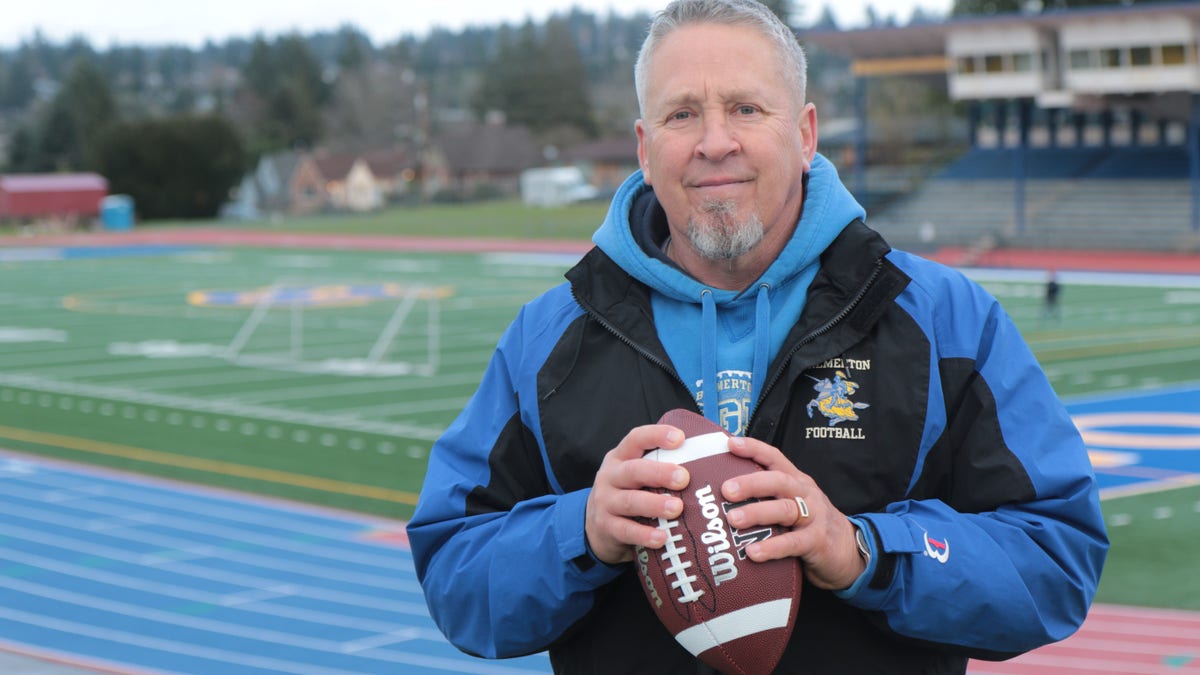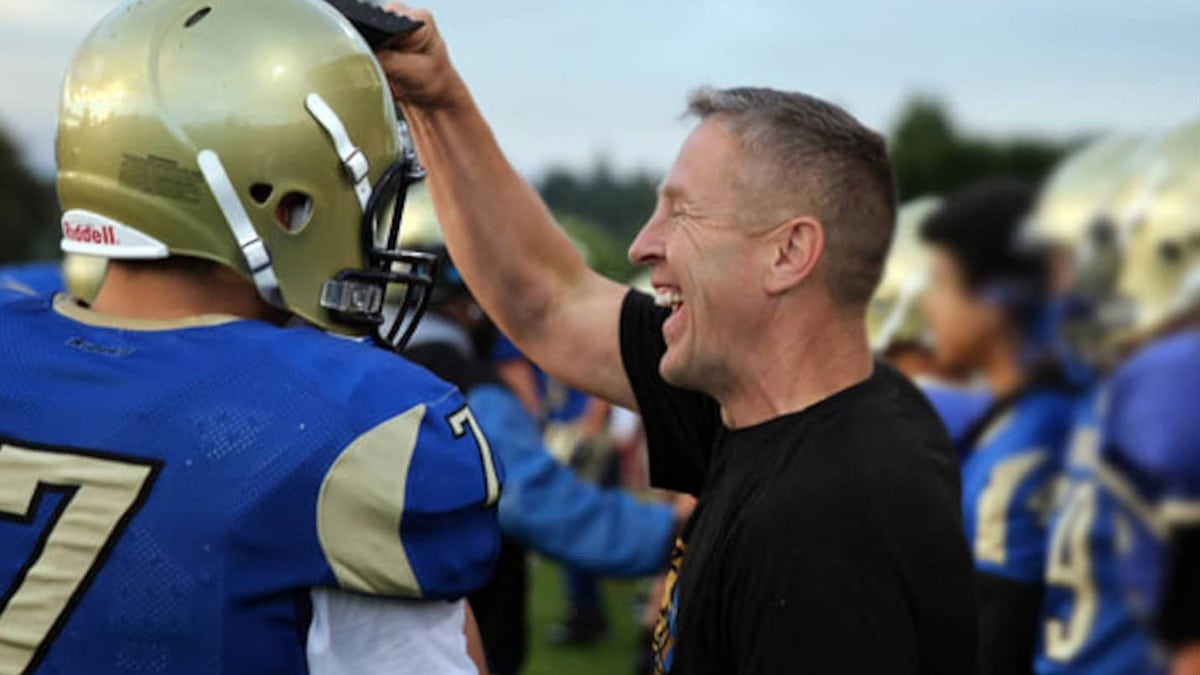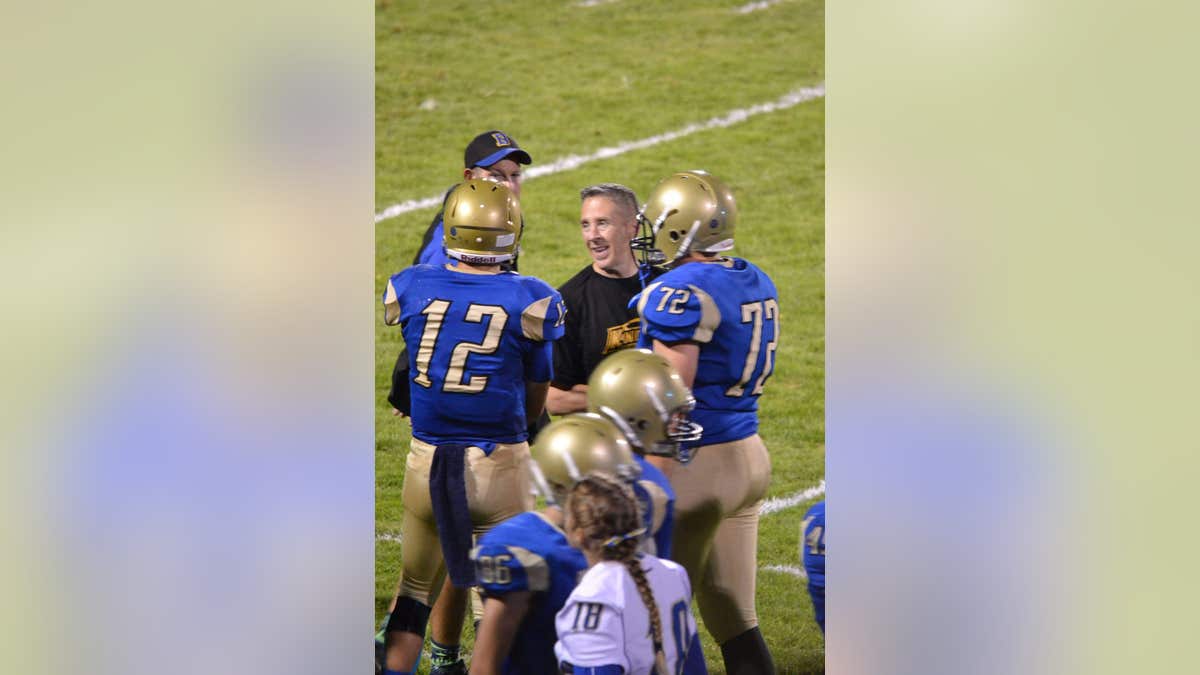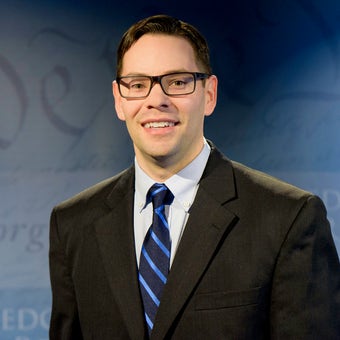Joe Kennedy: Fighting for religious liberty is 'without a doubt' worth it
Former high school football coach Joe Kennedy and First Liberty Institute's Jeremy Dys provide updates on their fight for religious freedom before the Supreme Court
The Supreme Court may be about to fumble a major case involving a former high school football coach who sought to impose prayer on his players.
The court has taken up the case of former high school football coach Joe Kennedy and his allegations that the Bremerton School District in Washington State violated his free speech and free exercise rights. But the religious liberty that is actually at stake belongs to student athletes who are at the mercy of their coach. Public school coaches cannot be allowed to abuse their position of authority to impose religion on students.
Kennedy’s attorneys have sought to wave a magic wand and distort the facts of the case in order to secure a victory before the court and the court of public opinion. At various times, they have claimed that Kennedy’s post-game prayers on the 50-yard line were "private," "silent" and "personal."
None of those descriptors is accurate. An appellate judge even called Kennedy’s attorneys’ version of events a "deceitful narrative."

Former Bremerton, Washington, high school football coach Joe Kennedy. (First Liberty Institute)
For years, Kennedy imposed his religion on football players by reciting team prayers not only on the field at the 50-yard line after games but, tellingly, also in the locker room. He bragged about his 50-yard line prayers on Fox News Radio in October 2015, saying that the "entire team" joined him. It was apparent at the time that he wanted to continue to involve students in the prayers.

Joe Kennedy, who coached high school football in Bremerton, Washington, with his players on the field. (First Liberty Institute)
Now, the former coach wants to spin the case and claim the school system is somehow stifling his right to engage in private prayer. In reality, the school district tried valiantly to accommodate him.
Kennedy refused an accommodation that would allow him to pray in the school building, athletic facility, press box or on the 50-yard line after his duties as coach had ended. He refused to stop making his communal prayer part of a public school sporting event.
SUPREME COURT CAN SAVE RELIGIOUS LIBERTY FOR FOOTBALL COACHES, AND FOR ALL AMERICANS
It is entirely reasonable, and constitutional, for the Bremerton School District to make sure that an employee’s religious activity is not interfering with job duties. Ultimately, the former coach’s prayers became a spectacle and interfered with the rights of conscience of students.
TEACHERS AND COACHES DESERVE TO HAVE THEIR CIVIL RIGHTS PROTECTED
At the homecoming game in 2015, Kennedy and an onslaught of pious performance artists rushed the field after the game, knocking over some students. Kennedy invited a state legislator to join his prayer and address the team.
True religious freedom means that students are not pressured or encouraged by school staff to engage in religious activity. Religion is personal and students’ rights of conscience must not be interfered with by a coach who wants to impose religion on other people’s children.
One Bremerton parent reported that his son felt "compelled to participate" because he feared that he "wouldn’t get to play as much."
Other parents said that their children participated in the prayers because they didn’t want to be separated from the team.
Justice Brett Kavanaugh recognized such concerns during the oral argument this week when he noted that every player "is trying to get on the good side of the coach."
CLICK HERE TO GET THE OPINION NEWSLETTER
Inevitably, those with minority viewpoints, such as the third of teenagers today who have no religious affiliation, Jewish students, or even Christians who are not evangelical, become outsiders once school staff members lead students in prayer. Also, non-Christian prayers will have to be permitted on the same terms.

Joe Kennedy coached high school football in Bremerton, Washington. (First Liberty Institute)
Already in Bremerton, a local Satanist group has expressed interest in conducting post-game religious ceremonies.
Those who are cheering for a "win" for Kennedy should fully consider the implications. Be careful what you wish for.
The solution to this acrimonious religious controversy has already been found. Decades of Supreme Court cases reaffirm the wisdom of separating state and church, especially in our public schools.
CLICK HERE TO GET THE FOX NEWS APP
It is students who are at risk of having their religious freedom violated, not a zealous coach who was given every opportunity to exercise his religion without interfering with the rights of others.
No student ought to be expected to pray to play, or to "get on the good side of a coach," in a nation predicated on true religious liberty.












































